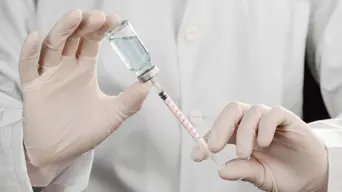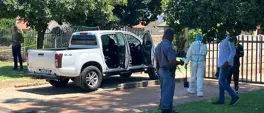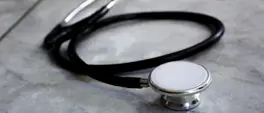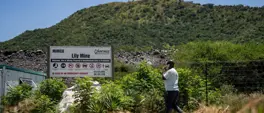Research links mRNA COVID-19 vaccine to longer survival in cancer patients
Tasleem Gierdien
6 November 2025 | 7:56The study builds on Dr Elias Sayour’s (University of Florida) earlier research and marks a key step toward a universal cancer vaccine that boosts immunotherapy’s effectiveness.
- CapeTalk
- Good Morning Cape Town with Lester Kiewit
- Lester Kiewit
- COVID-19
- Cancer
- Vaccination
- Immune system

Picture: 123rf.com/Iurii Golub
New research from the University of Florida (UF) and the University of Texas MD Anderson Cancer Center has found that patients with advanced lung or skin cancer who received a COVID-19 mRNA vaccine within 100 days of beginning immunotherapy lived significantly longer than those who did not receive the vaccine.
This discovery marks a milestone in more than a decade of work developing mRNA-based therapies that harness the immune system to fight cancer. The study builds on earlier research by Dr Elias Sayour, a pediatric haematologist and oncologist at UF, and represents an important advance toward the long-sought goal of a universal cancer vaccine capable of enhancing the effects of immunotherapy.
Published in Nature, the findings expand on Dr Sayour’s eight years of research combining lipid nanoparticles with messenger RNA (mRNA), the molecules that carry genetic instructions for making proteins within every cell, to strengthen the body’ natural tumour-fighting response.
"We stumbled upon this discovery many years ago in the lab and published those findings with other mRNA vaccines and found now that even the COVID-19 mRNA vaccine could be used as a tool to awaken the immune response in patients, at least, in a retrospective study."
Notably, Sayour’s lab reported a surprising finding in July: that to prompt a strong antitumor reaction, they needn’t go after a specific target protein in a tumour; instead, they could simply rev up the immune system, as if fighting a virus.
"We believe mRNA can elicit the 911 call that recruits the immune system in a very robust manner. We find that mRNA, when it gets into any cell, can illicit signatures that can call these first responders, these immune cells, and in so doing, it awakens the immune response in such a way that you're driving immune cells away from a hostile environment like the tumour to healthier areas like lymph nodes where now those immune cells can start to proliferate, expand and start to teach other cells to recognise cancer as foreign and in the presence of immune checkpoint inhibitors, those cells are allowed to survive and overcome some of the brakes that the tumour uses to turn off the immune response.
"It's a complicated mechanism, but these vaccines act like a 911 siren that illicit a pretty significant mobilisation that can awaken a specific response against the cancer."
The recent findings from a retrospective analysis of more than 1,000 patient records at MD Anderson are preliminary, but if validated in a randomised clinical trial now in design, the study could have a widespread clinical impact.
"When you're looking back at retrospective data, there are some biases. We've tried to control for these as best as possible, but this is not definitive proof that the COVID-19 vaccines, in fact, will enhance response to immunotherapy. It's very intriguing and suggestive data that has been validated in mouse models; we think we understand the mechanism. However, to say definitely that this actually does, in fact, enhance response, we need a prospective study; a phase three study."
"The COVID-19 vaccine was not designed to treat cancer; it's designed to give you a neutralised antibody to prevent the COVID-19 infection from spreading, so the idea that even that one could potentially work is very exciting. We could have a universal tool to enhance immunotherapy response.
"This speaks to the value of what mRNA could be, and it's exciting," says Sayour.
To listen to Sayour in conversation with Lester Kiewit on CapeTalk's Breakfast show, click below:
Get the whole picture 💡
Take a look at the topic timeline for all related articles.













